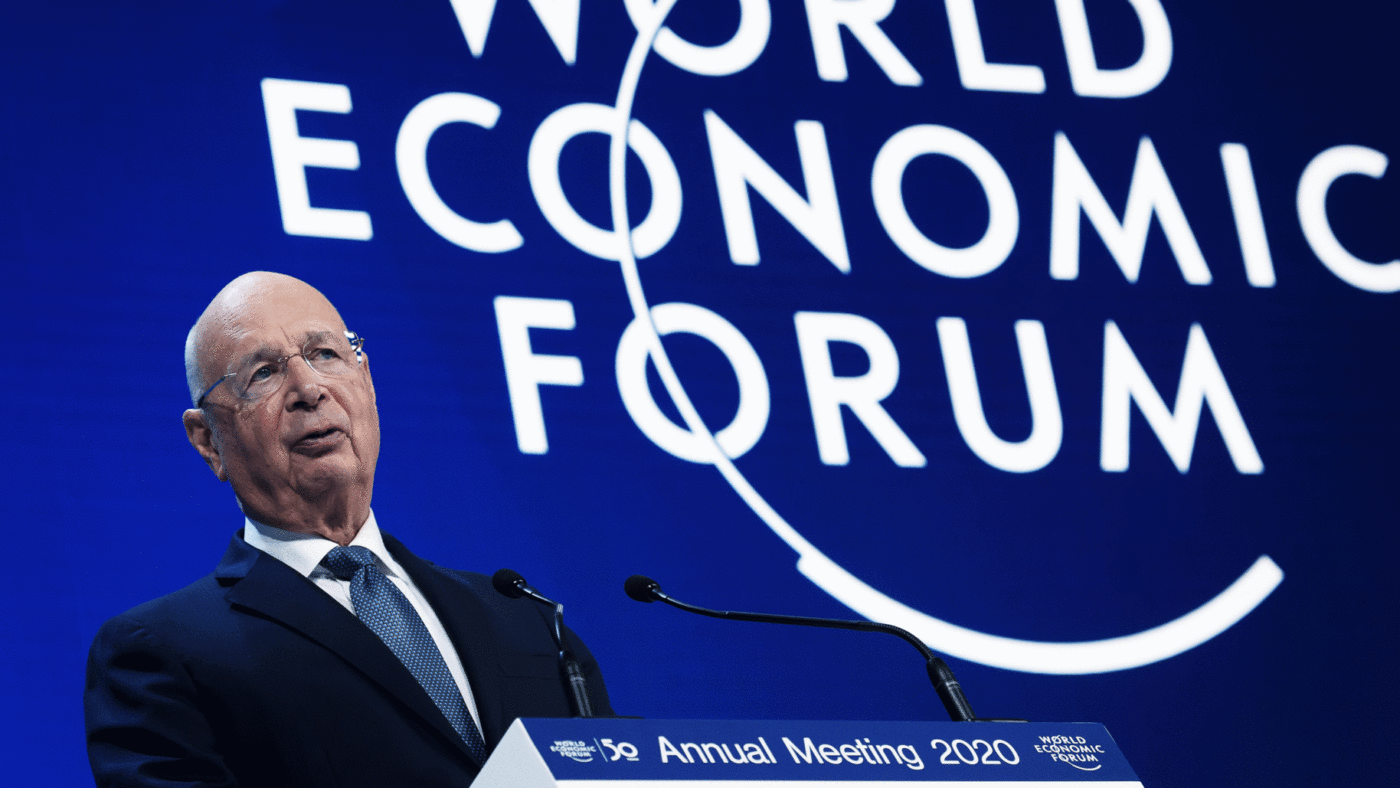One undoubted silver lining of Covid has been the cancellation of the world’s most insufferable and useless virtue-signalling, willy-waving conference: the World Economic Forum at Davos.
If you wanted proof of the total vacuity of this gathering of the super-rich and super-woke, it’s that the emergence of coronavirus didn’t get even a passing mention back in January.
George Soros complained about the stock market; Angela Merkel warned about conflict in Libya; Greta Thunberg spouted her usual nonsense; while the ghastly Carrie Lam was given a platform to blame foreign influence for protests in Hong Kong.
But if you thought you could now ignore these unbearable charlatans, you were sadly wrong.
Though the Alpine knees-up might not be happening in 2021, the man behind the World Economic Forum has declared that Covid warrants a ‘Great Reset’. With tedious predictability, Klaus Schwab’s bogeymen are the twin menaces of “neoliberal ideology” and “free market fundamentalism”. What does this actually mean? It’s not clear. It never is. But rest assured, it’s bad.
Schwab wants “innovative new business models” and “basic engines of growth” and rejects Milton Friedman’s argument that “the business of business is business”. Schwab clearly has an eye for a meaningless cliché, as he’s also calling for a “stakeholder model of corporate capitalism” that better accounts for the interests of customers, workers, suppliers, and nice squishy things like the community, social justice and the environment.
We’re supposed to believe this is somehow courageous, rebellious and forward-looking. It’s none of those things. Nor is it even new. The World Economic Forum has been advocating for “stakeholder capitalism” since before the current crisis. Covid is simply a convenient peg on which to hang their existing preoccupations.
And it’s all such a transparent attempt to seem popular. ‘Stakeholder capitalism’ is to a corporate meeting what socialism is to a first year university politics course: everyone agrees with it, and those who don’t just stay silent. If you wanted further evidence, just look at the long list of US corporate executives who have signed up to the ‘Business Roundtable’, with its wonderfully vague promise of “an economy that serves all Americans”.
Still, let’s humour them and have a look at what ‘stakeholder capitalism’ actually means. This is neither a new, nor a well understood debate. It all goes back to pretty fundamental questions about managers vs shareholders that Adam Smith wrestled with in 1776.
In The Wealth of Nations, Smith warned that managers will never oversee other people’s money with the “same anxious vigilance” as its original owners. This, Smith warns, leads to “negligence and profusion”.
Smith’s insights were clearly lost on Adolf A. Berle and Gardiner C. Means, whose 1932 book The Modern Corporation, and Private Property offered a full-throated defence of managers ignoring their business’ owners. Berle and Means argued that because of the separation of management and ownership, shareholders have “surrendered the right that the corporation should be operated in their sole interest”. That became the abiding philosophy of American corporate capitalism for decades to follow.
But it’s an idea based on a false dichotomy. A business that fails to return a profit to its shareholders cannot do anything for its other stakeholders, such as providing useful products to customers, paying its staff, procuring from suppliers, or paying taxes to fund public services. Delivering for shareholders is ultimately indivisible from benefiting your other ‘stakeholders’ because you can’t do one without the other.
Take the case of the Malden Mills clothing factory, which burned down in 1995. Its owner Aaron Feuerstein not only rebuilt the factory but also used company cash to continue paying the full salaries of 3,000 employees for six months at a cost of $25 million. Feuerstein was widely celebrated for the decision to act in a “responsible” manner. But his generosity was not without consequences: Malden Mills went bankrupt, and ultimately ceased operations, leaving substantial unfunded pension contributions.
Malden Mills was a private company and Feuerstein was well within his rights to use his money in whatever way he chose. But the decision to prioritise immediate higher salaries undermined the entire enterprise, in the end the ‘stakeholders’ were hung out to dry by the failure of the business.
Many of today’s corporate giants risk making the same mistake. Too many corporations act like they have lost the will to survive. Dutch airline KLM puts out adverts discouraging people from flying, while BP (originally British Petroleum) have announced they will move away from producing oil. This may be many things, but in the interests of shareholders it emphatically is not.
For many businesses, this will be mere public relations (“values and identity-driven targeted marketing”). But it risks doing deeper damage by poisoning the well. Just like Malden Mills went bankrupt after Feuerstein’s supposedly selfless act; corporate virtue-signalling could spell doom for institutions that have delivered prosperity.
Shivaram Rajgopal of Columbia Business School has found that top European companies who brandish their social and environmental credentials do no better in these criteria than American companies. But the European firms are much worse at ensuring good corporate governance. For example, worker representation on Germany’s supervisory boards has often meant worker representatives teaming up with managers to push against new technology and methods. In the longer run, this undermines returns to shareholders, but also means poorer products for customers, lower salaries for employees and less tax revenue for services.
As we recover from this calamitous and extraordinary economic crisis, we are going to need businesses to step up to develop innovative products, create more highly paid jobs and, yes, pay their taxes. If that tried and tested model for increasing prosperity is “market fundamentalism”, then it’s a thoroughly good thing.
Click here to subscribe to our daily briefing – the best pieces from CapX and across the web.
CapX depends on the generosity of its readers. If you value what we do, please consider making a donation.


